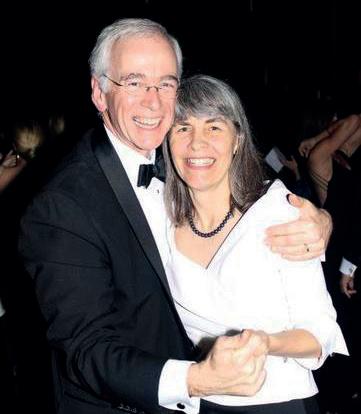
3 minute read
TOSCA TODAY
PERSPECTIVES ON TOSCA TODAY THE OF POWERABUSE
By Dasia Hood
Imagine possessing a powerful position, patriarchy, privilege, or prerogative, and sitting on the throne before you is a question of motivation: how shall I influence outcomes in the lives of man, woman, child, and beast while maintaining influence over my own? Hopefully, futures change for the better thanks to your prestige, but possibly, power changes one’s personality despite pledges to goodwill. In Puccini’s Tosca, Baron Scarpia declares to have Floria Tosca at his will through power play, ultimately securing the death of her lover. Tosca condemns him, but the gall of it all lies solely in his position and lack of compassion, charm, and humility. Who can save the puissant personality from punishment, but perhaps not purgatory? The authority of the U.S. Department of Justice describes the abuse of power as “the misuse of a position of power to take unjust advantage of individuals, organizations, or governments.” One extends the concept to relationships, family structures, communities, and institutions. Tosca applies abusing power through dramatic evidence of harassment, manipulation, and political imprisonment. But, grand audience, what is power? I say, “Power is what you make it.” In the children’s story Return to Exile by E.J. Patten, the storyteller writes, “power without compassion is the worst kind of evil there is.” But, Austrian psychiatrist and Holocaust survivor Victor E. Frankl teaches us that “between stimulus and response there is a space. In that space is our power to choose our response. In our response lies our growth and our freedom”. If the stimulus is power, one can hope humility, compassion, and wisdom lie in the space from which a ruler will choose their response. Within power dynamics, there lies a paradox. A person may influence others through expertise, charisma, or access “Power without to opportunities, but at what cost? Baron Scarpia’s predato- compassion is the rial personality is less than charming, but his political position worst kind of evil gives him access to opportunities of life and death to hold there is.”over his prey. Research shows that acquiring power leads to psychological consequences, such as personality changes that affect your peripheral thinking and feeling. The more you have, the more sociopathic you are likely to become. You begin to care less about others, use more stereotypes, objectify others, and misbehave. For example, Herod the Great is not known to be great for his empathy and charisma. But instead, his misuse of authority. Herod the Great made great strides for Rome as the king of Judea by creating projects to increase employment and improve the economy, but he was sick with power. Paranoid about losing his leadership after the proclamation that the King of Jews would be born, he ordered the deaths of all children two years old or younger in Bethlehem. In all stories, the abuse of power comes from fear of losing control and an internal sense of inferiority in a chaotic world. Avoid abusing power by owning the personal choice to practice spiritual humility, and know there is greatness (good or evil) within every position, passion, or perspective.


Ensure that future generations can experience the beauty of live opera. Make a lasting gift.
Legacy Gifts and Estate Planning ensure the future of Opera in our region. Please consider discussing a planned gift to Opera Carolina with your investment counsel.
To learn how you can participate in building a secure future for Opera Carolina, please contact Kimberly Mize (kimberly@operacarolina.org) or James Meena (james@operacarolina.org).








